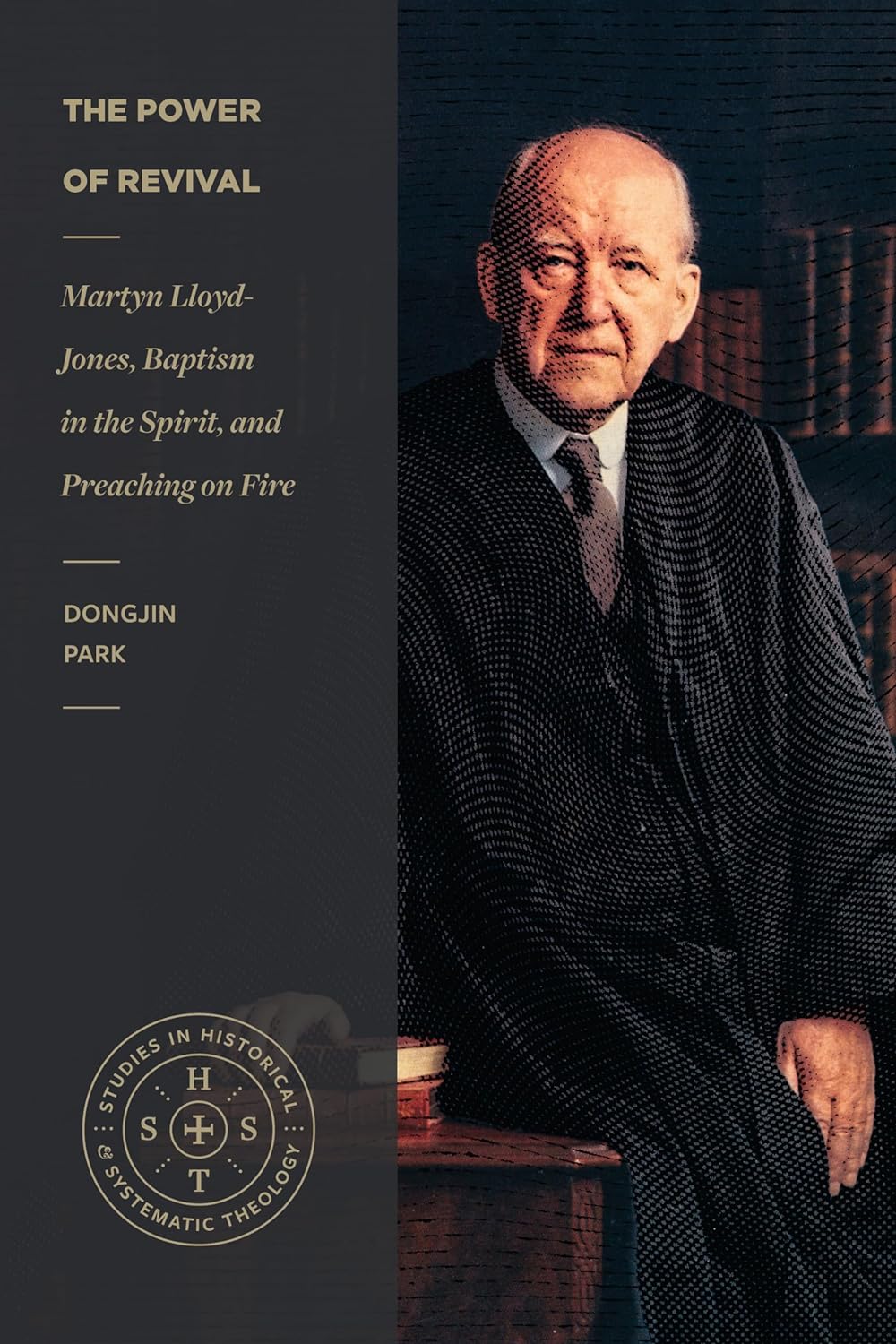
Dongjin Park
Reviewed by: D. Leonard Gulstrom
The Power of Revival: Martyn Lloyd-Jones, Baptism in the Spirit, and Preaching on Fire, by Dongjin Park. Lexham Academic, 2023. Paperback, 264 pages, $26.99. Reviewed by OP minister D. Leonard Gulstrom.
Dr. D. Martyn Lloyd-Jones (MLJ) is without a doubt one of the most influential preachers of the twentieth century. His books, commentaries, and sermons have been a source of edification for people across the globe. In The Power of Revival, South Korean professor and pastor Dongjin Park (PhD, McMaster Divinity College) has written an engaging and well-researched book on the one issue that some, particularly in the Reformed community, have had with MLJ—his doctrine of the baptism of the Holy Spirit.
In nine chapters Dr. Park traces out how MLJ came to his conclusions on the doctrine of the baptism of the Holy Spirit. MLJ’s understanding of this doctrine differs substantially from that of the Pentecostal position. MLJ objected to speaking in tongues as evidence of Spirit baptism, opposed the belief that this was given through the laying on of hands, and did not regard Spirit baptism as a once-for-all crisis experience. So what did MLJ see as the basis for his view of Spirit baptism? Parks traces it back to several influences that he believes affected MLJ’s interpretations of Ephesians 1:13–14 and Romans 8:15–16. First, there is one strand of Puritan teaching that spoke of this in regard to assurance of salvation and revival. This is found in John Owen, Thomas Goodwin, and Richard Sibbes, though they did not completely agree with one another. Second, MLJ’s upbringing as a Welsh Calvinistic Methodist had a great influence on him. This denomination encouraged regular “experience meetings” that were divided into two groups. One meeting was for the “general society” and the other to an inner “private” society. To be a part of this latter group you had to answer yes to the question, “Does God’s Spirit at all times bear witness with your spirit that you are a child of God?” Third, MLJ’s reading of the revivals and testimonies of such men as Howell Harris and Daniel Rowland as well as others whom the Lord used to bring revival to his church, such as George Whitfield and Jonathan Edwards, convinced him of the need of a special unction of the Spirit, an anointing of the Spirit, a sealing of the Spirit, which MLJ interpreted to be the baptism of the Spirit. And fourth, MLJ was convinced of his own experience of Spirit baptism.
It was this emphasis on assurance and revival that had such a profound effect on MLJ. As he looked at the church and the world around him, he was moved to pray for revival, not the revival that is man-centered, but one that comes from the work of the Spirit in the hearts of men. This he saw as a possible immediate work of the Spirit, even without the means of the scriptural Word, which is a notable deviation from Reformed theology. This he saw as the need of the day: the necessity of Spirit baptism in preaching so that there might be another revival in the church of Christ. This is true preaching, or as MLJ called it, “logic on fire.”
Park does an excellent job of explaining all of this in a way that makes us realize that, while we might not agree with MLJ on Spirit baptism, we would all agree that the need of revival today, the need to pray for revival, the need of Spirit-filled preachers, and the need of Spirit-filled preaching today, is as great as ever. Let those of us who bring God’s Word to his people seek in our prayers, in our study, and in our preaching, that God would use his Word and Spirit to bring in another day of great harvest for the kingdom.
April 13, 2025
Suffering: God’s Purpose in Our Pain
April 06, 2025
Sunday Matters: 52 Devotionals to Prepare Your Heart for Church
March 30, 2025
On the Trail with a Missionary
March 23, 2025
Midnight Mercies: Walking with God Through Depression in Motherhood
March 16, 2025
March 09, 2025
Zwingli the Pastor: A Life in Conflict
March 02, 2025
© 2025 The Orthodox Presbyterian Church